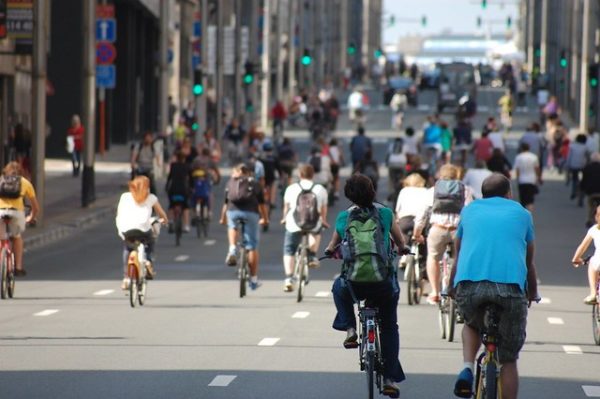Belgium’s federal government is launching its first ever bicycle plan, aimed at increasing cycling in the country.
The plan is titled “Be Cyclist,” according to reporting from De Standaard, and combating bicycle theft is chief among the priorities.
“If more people cycle, this is good for our economy, because the costs of traffic jams are sky-high,” said Minister of Mobility Georges Gilkinet.
“Cycling is also good for our physical health and mental well-being: cycling makes you happy and is a real freedom. And of course cycling also has a positive impact on our climate.”
The action plan to promote cycling includes 52 different measures aimed at increasing the use of bicycles in the country.
It ties into other plans regarding the reduction of CO2 emissions, and the European “Fit for 55” initiative.
While green mobility is crucial to achieving those goals, critics point out that the federal government doesn’t actually have much power to implement many policies relating to such a transportation shift, as everything relating to bicycle infrastructure falls under the control of regional governments.
Theft is high on the agenda, an issue felt especially in Brussels.
“If your bike is stolen, it is a major setback and it can cost you a lot,” said Gilkinet.
Part of the federal plan involves an investigation into the possibility of a central bicycle register, not unlike the one already in place in Brussels.
The country is also looking into stimulating bike use for commuters through improvements to the bicycle allowance.
Around 571,000 Belgians are currently entitled to such an allowance, but the government is considering expanding the program and having federal government services set an example of how it can be promoted on a company-level.
There are also initiatives like expanding bike infrastructure by building more bicycle highways.
Smaller initiatives include establishing a bicycle brigade with the aviation police and social projects geared towards promoting the use of bicycles among asylum seekers in Fedasil reception centres.
Any new military quarters built will also require attention to be paid to bicycle accessibility.
A federal bicycle commission will be established in order to coordinate the cooperation with the regional authorities.
The government will not release additional financial resources for the implementation of the plan, which must be budget-neutral, reports De Standaard.
It will run from 2021 to 2024 and will be evaluated regularly, Gilkinet said.
The Brussels Times

